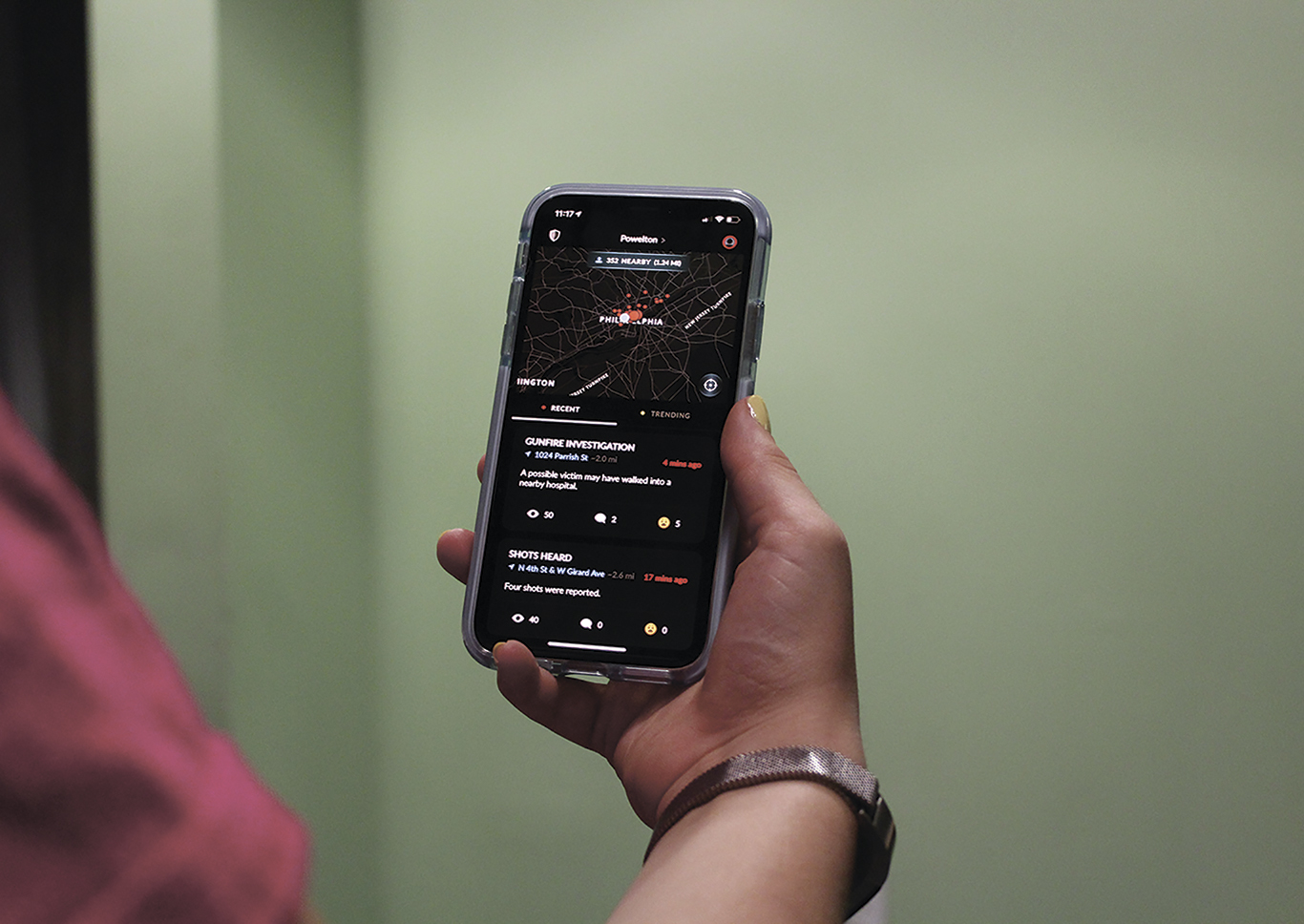
In February, Citizen announced that it was launching in Baltimore. Come March 2019 Citizen launched in Los Angeles. Now, in April 2019, Citizen has made its way to Philadelphia.
An app designed to raise crime awareness was officially launched April 16. Citizen, formally known as Vigilante, was first used in New York City to raise awareness about crime by informing users of dangerous areas to potentially avoid, according to Andrew Frame.
However, the app only lasted a single week before being ousted by the App Store. Vigilante was taken down over potential safety concerns that the app encouraged vigilantism, racial profiling and behavior considered generally unsafe, as reported by a TechCrunch article.
The app was quickly becoming reminiscent of apps like “Nextdoor” that purported large instances of racial profiling and untrue instances. The goal of an app such as Vigilante wasn’t telling people what places to avoid in New York City in general, but rather providing a framework for real-time streams of information of crimes occurring in the city.
The actual cause of the Vigilante app’s removal was the fact that it encouraged people to go towards the scene of a crime, therefore violating a clause of Apple’s App Developer Review Guidelines.
Founder Andrew Frame continued to work with Apple, and while rebranding the app to meet the guidelines, a new name arose. Instead of “Vigilante,” it was to be “Citizen.” The distinguishing factor of the app’s main purpose lies simply in the definitions of the two words.
A vigilante takes the law into his/her own hands. While this case is typically because they need to, they are nevertheless breaking laws themselves to be vigilantes — that’s what Apple was getting after. A citizen, on the other hand, is just an average person living in a city or area. Things happen all around citizens, and Frame wanted the new and updated Citizen app to reflect who it was serving to help.
Citizen relaunched in 2017 with a new and reinvigorated status and a better understanding of its functionality. Citizen serves as an app that provides a host of information to individual’s phones regarding emergencies in their area, and wants to keep everyone as well informed as they can be.
According to a CNN article, Citizen’s main functions are working with over 100 public-safety radio bands around the clock in its cities of operation, and sending out the most important information to its users within a specific area of each incident to continually update people about what is going on around them.
When Citizen began expanding in 2017, its first major city after New York was San Francisco. After receiving a $12 million initial round of funding from Sequoia Capital, the app was able to reach the West Coast a mere six months after restarting. Since expanding to San Francisco, Citizen had been consistently operating in those two hubs. That is, until 2019 rolled around.
In response to why Citizen came to Philadelphia, Head of Policy & Communication at Citizen Peter Donald was able to elaborate.
“Citizen has been preparing to activate Philadelphia for several weeks after receiving hundreds of requests to come to the city,” Donald said.
Now, when it comes to the Citizen app and being a factor on Drexel’s campus, there is a question that can quite easily be raised: Drexel already has an embedded notification system for alerts in its university, so why get another app? Because sometimes, campus alert systems don’t catch everything.
For example, when an incident at San Francisco State occurred and the school’s alert system missed it, it was reported by Citizen within minutes of the incident occurring, and had released 15 updates by the time San Francisco State had even sent out a single notification. By the time the university had sent out the alert, almost 10,000 people had been informed by Citizen within a 3-mile radius.
In terms of how impactful it will be in the city of Philadelphia, Donald believes that the city will follow in the footsteps of Baltimore and Los Angeles, marking a consistent, positive trend for the app in 2019.
For more information, go to https://citizen.com or download the app on the App Store or Google Play.


